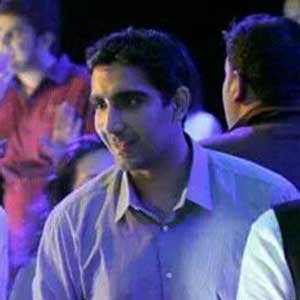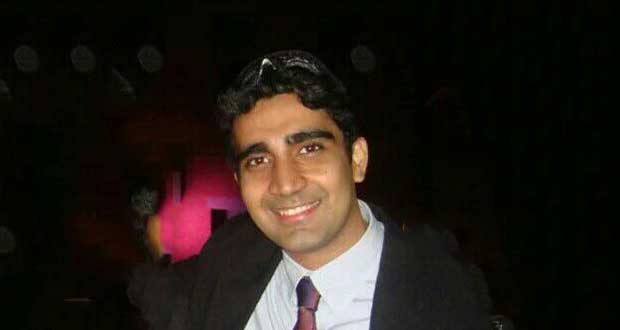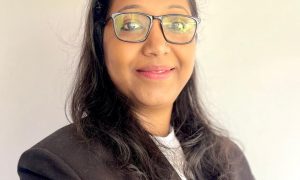Anirudh Hariani graduated from GLC, Mumbai in 2011, with a BLS.LL.B degree. He later went on to pursue his LL.M from Cornell Law School. During his law schools he had the opportunity to intern with many legal luminaries, and in the midst of all these he had managed to score highly on research work and publications.
We have asked him to share:
- How research and publications helped him gain admission to Cornell Law School.
- His experience interning with major Independent counsels.
- Experience in environment law litigations and working on pro bono.
- Law school experience at GLC, Mumbai.
Please tell our readers, what is it that motivated you to take up law right after school?
I’ve always been interested in two facets of law: argument and problem-solving. This stems from my school days when I participated in Model United Nations conferences. I also enjoy intellectually stimulating challenges, which one is faced with on a daily basis in our profession. My family background in law was also a strong influence on me.
How was your law school experience at GLC, Mumbai?
The big advantage of GLC is the fact that you can work while studying. Classes usually get over before noon, so most students take up full time or short-term internships during the year, which I found particularly useful. But this advantage may be diluted due to the recent Bar Council circular barring law students from doing internships during the academic year. The impact, if any, the notice will have on articled clerks intending to appear for the solicitors’ exam is also unclear.
There’s no doubt that GLC has several deficiencies. Attendance at lectures is very low and the lectures themselves are conducted in a haphazard fashion. There are hardly any full time professors. But during my time there were a handful of highly regarded lecturers, including part-timers, whose lectures were always full. We had a professor who is now a Bombay High Court Judge, and other members of the legal fraternity used to lecture frequently. Their practical insights were invaluable.
The proximity of GLC to the Bombay High Court, which is literally a stone’s throw away, does provide a conducive environment for students to take up litigation. But at the same time, Mumbai is the commercial hub of the country so you will find graduates taking up all kinds of law careers based on their interests.
In GLC, guest lectures are organized on a fairly regular basis and extremely prominent luminaries are invited for the same. What role does that have to play when it comes to a student making his career choice?
GLC has had a strong tradition of co curriculars, which are all student-run. During my time in college we organized an annual lecture series and had some fantastic speakers come to speak to us, including Mr. Soli Sorabjee, Mr. T. N. Andhyarujina, Mr. Anil Divan, Mr. Harish Salve and non-lawyers such as Dr. Shashi Tharoor etc. GLC, being the oldest law school in Asia, has produced many of the top lawyers in the country, over the years, so many of the speakers who would come to speak were alumni. The debating society would organize an annual debate on the steps of the Asiatic Library, which was a panel discussion with academics and policy makers, moderated by Mr. Aspi Chinoy, a senior advocate. During the D.M. Harish moot, GLC’s flagship moot, a Constitution (5-judge) bench of the Bombay High Court would preside the final rounds.
These experiences of interacting with luminaries, and hearing them speak about their areas of expertise, or hearing their anecdotes while practicing, certainly develops passion in students’ minds. It’s not only theory that you learn, but also context and history, which motivates students greatly.
 You have done substantial amount of work and research in environmental law. What do you say about it as a field of study? You have also taken up pro bono litigations. What motivated you to take up these not so lucrative tasks?
You have done substantial amount of work and research in environmental law. What do you say about it as a field of study? You have also taken up pro bono litigations. What motivated you to take up these not so lucrative tasks?
In India, despite having been practiced for many years environmental law has not developed into a viable means of full time employment for lawyers. The primary reason for this is that courts do not award exemplary damages, unlike in some countries, and in any case the Bar Council prohibits sharing of the proceeds of a case with the lawyer, so there is little or no incentive for lawyers to take up environmental law full time. Lawyers can’t, as a result, afford to work pro bono all the time.
I have been involved in a few environmental matters during my time at Hariani & Co., including a major mining case, which was exciting and at the same time humbling experience, though not pro bono. On a smaller scale, I have worked pro bono with environment and animal rights activists, on matters which involve the animal welfare, in the Bombay High Court. The experience of doing such work is extremely rewarding as you can see the direct results of your work.
I also helped update a book on environmental law, written by a leading senior advocate based in the Supreme Court. While researching for the same, it was remarkable to see the same handful of names being repeated in the cause title of Public Interest Litigations. It appears that there are a small but growing number of litigants taking up environmental causes such as deforestation, irregular development, etc. While environmental law is in its nascent stage in terms of litigation, there is no dearth of laws protecting the environment in India. The main problem is implementation.
I eventually took up an environmental law course during my LL.M at Cornell. Despite environmental laws in the US being so radically different from Indian law, it was interesting to study the same from a purely academic perspective.
Most of your litigation internships include ones under Advocate and Attorney General and includes late Mr. Vahanvati. Is there any special reason why you chose to work with independent counsels? Please tell us a bit about your internships.
I chose to work with independent counsel to get a more holistic view of the law. Litigation is probably the purest form of law. With litigation one can come across all kinds of commercial and civil matters without being restricted to a particular area or niche (not that niche practice is uncommon). Working with counsel I vicariously experienced the thrill of appearing in court, which definitely increased my interest level in law per se.
I was lucky to have worked with some very senior lawyers during my days at GLC. At different times, I interned with both the former, and present (prior to his appointment) Advocate General of Maharastra. Their preparation and thoroughness for matters taught me that there is no room for complacency in the profession, at the very top.
I also worked with the late Mr. G. E. Vahanvati, former Attorney General for India, who was a very interesting person. He was a hands-on senior with interns. I was permitted to sit in his chamber and he would chat to me about his practice and his experiences at the bar – he too started his career in Mumbai. His general advice was that a student or young lawyer should make sure they learn something new each day. His advice, along with the high profile nature of his briefs, was extremely exhilarating for me, a fourth year intern. His untimely death was truly a loss for the profession.
Through GLC students were sent to New Delhi, for judicial clerkships with Judges of the Supreme Court. Every lawyer / student must have dreamt at some point of time in their lives of working in the Supreme Court. For me it was no different. Having worked with the Attorney General, it was interesting to see the perspective from the other side of the bar. After court, I would go to the Judge’s house (a beautiful Lutyen’s bungalow) and do research work. It was exciting and somewhat intimidating knowing that your work may eventually appear as part of a judgment of the highest court of the land.
I also interned with a Judge of the Bombay High Court in my final year, for a six month period. This was truly the icing on the cake, as I had grown accustomed to working in the Bombay High Court and was relatively comfortable in the environment.
You have done an internship at Kanga & Co, which is one of the oldest law firms in India. How was your experience there?
Kanga & Co. was my first internship as a law student at the end of my first year. Initially I was pretty clueless. But with the help of some good seniors and co-interns I learned quite a lot, even though we had not begun our proper law subjects at GLC.
I remember that at one time, a partner required a co-intern and I to urgently draft a petition as he was travelling. Being completely fresh, we did our best with the information at hand. We didn’t know at the time that our first draft would eventually be converted into a full SLP which would be admitted in the Supreme Court!
You have also interned in corporate law departments. How different was it?
I interned with J Sagar Associates, Mumbai for one year, as a permanent intern/ paralegal. As I mentioned, apart from during exams, GLC permitted students to work through the year and many students took up long-term internships. As part of a mixed corporate and real estate team, I worked on several transactions, including performing due diligences etc. It was a proper corporate law experience. The environment was friendly and motivated, and I enjoyed working with the people there. The major take-away from my year at JSA was the large law firm culture, and the professionalism and efficiency of associates and partners which I tried to emulate. It was a good experience overall.
Later on, I had a short stint with a medium-sized law firm in London, and my experience at JSA certainly helped prepare me for working with them. The work culture in the UK was more casual than Indian law firms. Partners would interact with interns and ‘trainee solicitors’ more casually, and would occasionally join them at the end of the week, for a drink at the pub.
Prior to this, as a second year law student, I had also interned in the legal/ secretarial department of a large pharma company. Most of the people in the department were qualified company secretaries. It was my first brush with corporate law, prior to my JSA experience, although from the angle of the client and not the lawyer. It was a mixture of corporate compliances and reading up on company law from the CS angle, which I found quite interesting.
You have been an avid writer and you have had many publications. How important do you now find your research skills?
As a law student, I thoroughly enjoyed legal writing. Putting your thoughts down on paper not only cements your understanding of the topic, but allows you to go in-depth and to formulate your own analysis. I especially enjoyed researching on developing areas of law, such as copyright law. I always looked up to the GLC law review as a fresher, as I had heard seniors talking about it with reverence. That’s where I submitted my first legal paper, and luckily I was selected to be published.
In my opinion, both legal writing and advocacy are equally important. But while mooting is given its due, legal writing is often overlooked. The emphasis should be equally on both.
Even as a qualified lawyer, one is constantly preparing opinions or notes on one topic or the other. So legal research and writing skills are very important and are put to practical use. Also, academic writing establishes an in-depth understanding of that particular area of the law, which may not be the case when studying for exams or doing compulsory projects. Also, the satisfaction of seeing your name in print as a student is tremendous.
After your graduation, you pursued LL.M from Myron Taylor Hall, Cornell University Law School. How helpful did your publications prove to be in gaining an admission there?
I think my publications definitely helped me gain admission to Cornell Law School. Other things that the admissions officers look at are your statement of purpose, grades, work experience, etc.
Having pre-existing research skills definitely helps when doing an LLM. In the first week of the LLM, we were given a tour on how to use Westlaw and LexisNexis. Having used Westlaw for an international moot and for articles, my integration was easier. Legal drafting on the other hand was completely different in the US. They have a very informal approach to drafting. While Indian contracts will run into several pages, a contract there would be more concise, informal and to the point. In fact, there was even a whole introductory course offered to LLM students on American legal writing.
Along with research work, you were pretty active in other co curricular activities like being in OCs, debating, MUN etc. How did that part of law school affect your overall personality?
Co curricular activities such as mooting, debating, MUN, being part of OCs, etc. are important to any law student’s overall experience, and to get to know people in college. I was very active in such activities in my first few years at GLC. My co curricular activities reduced as I got busier with internships.
GLC has traditionally been a very good mooting school, but in recent years the emphasis is on national law schools. During my time we had some seniors who were fantastic mooters. Watching them moot and trying to emulate their successes was always what we aspired to do. With mooting I also had the chance to meet law students around the country, some of whom I kept in touch with. So, involving myself in mooting and other co curricular activities definitely impacted me positively.
Finally, is there any tip you would like to give to our budding lawyers?
Experiment as much as you can during your five years at law school. Try to develop your ancillary skills and soft skills while in law school, because you will need them during practice.
























